| Author |
|
moshkito 
Forum Senior Member


Joined: January 04 2007
Location: Grok City
Status: Offline
Points: 16178
|
 Posted: September 07 2014 at 11:21 Posted: September 07 2014 at 11:21 |
 SteveG wrote: SteveG wrote:
One of the forms that Progressive Music developed out of in the 1960's was experimental Psychedelic Rock like the Beatles' entire Sgt. Pepper's concept album and songs. Was proper Progressive Rock Music in late 1960's trying to enhance Psychedelic Rock or become a more serious art form and try to escape it? Or was it a combination of both, or was neither the case? |
I think there is more to it than that ... it's almost like saying that Stravinsky came out of .... ??? ... and I'm not sure you will find a good link, other than ... the time, the place and everything else. I do not believe that "music" is the only thing. People do have lives you know?
|
|
Music is not just for listening ... it is for LIVING ... you got to feel it to know what's it about! Not being told!
www.pedrosena.com
|
 |
Svetonio 
Forum Senior Member

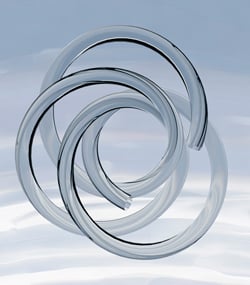
Joined: September 20 2010
Location: Serbia
Status: Offline
Points: 10213
|
 Posted: September 07 2014 at 14:26 Posted: September 07 2014 at 14:26 |
 SteveG wrote: SteveG wrote:
One of the forms that Progressive Music developed out of in the 1960's was experimental Psychedelic Rock like the Beatles' entire Sgt. Pepper's concept album and songs. Was proper Progressive Rock Music in late 1960's trying to enhance Psychedelic Rock or become a more serious art form and try to escape it? Or was it a combination of both, or was neither the case? |
Neither the case. Imo, It's crazy to think that at that time, in the sixties, someone sat down and said something like "let's this psychedelia to be upgraded" or "we need to create a new genre using psychedelia". The Mothers were "just original" when they were recorded Freak out!, the f irst progressive rock album ever. Of course that there was a strong desire by The Mothers to create something freaky for freaks, but there was not a premeditation that they should to make a new genre, i.e. "to escape from psychedelia to prog".Hendrix certainly did not intend to make a new guitar revolution, he just played the way he wanted, and that was recognized and accepted.
I don't believe that The Beatles did think that they have to escape from early psychedelia to British progressive rock with Strawberry Fields Forever / Penny Lane the single. It just happened that this single is much more, say, "daydreaming" and "melancholia" than "soul", "inner worlds", LSD and "space" what the psychedelia originally was, and that difference between psych and prog could be detected, & it was opened up a new space for young & talented British bands who have just arrived to experiment in that direction.
A music that was a bit later called prog, in my opinion, it's a result of the search for new and original things that were just waiting to be discovered in a new creative space from Zappa and Hendrix to the Beatles. It's just happened.
Of course, all the artists I mentioned above, they all were the ingenious artists, those who push the boundaries. Basically, progressive rock was / is a matter of the artists' unbridled creativity and acceptance of their stuff by the audience, & defined by the audience as prog.
Edited by Svetonio - September 07 2014 at 23:57
|
 |
Toaster Mantis 
Forum Senior Member

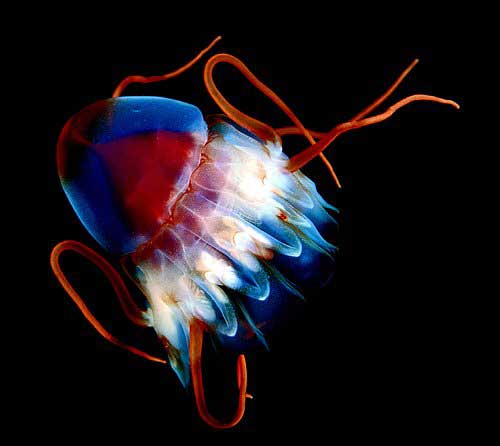
Joined: April 12 2008
Location: Denmark
Status: Offline
Points: 5898
|
 Posted: September 08 2014 at 01:05 Posted: September 08 2014 at 01:05 |
|
Adding to the confusion is that Frank Zappa did not consider his music
part of the psychedelic movement at all, only cribbing from it for the
occasional pastiche. I think he identified more with the jazz scene than
anything else, specifically the part that crossed over into rock music
in the late 1960s.
Even when fitting into the definition of prog
rock as a classical/rock fusion, Zappa was coming at a different angle
than most in the European progressive rock movement he inspired. I
believe his classical influence came from rather modern sources like
Igor Stravinsky and Edgar Varese, which in Europe only some of the
Kosmische Musik and the RIO groups drew more from.
Same thing with Beefheart, though I think he identified somewhat more closely with psychedelic culture.
|
|
"The past is not some static being, it is not a previous present, nor a present that has passed away; the past has its own dynamic being which is constantly renewed and renewing." - Claire Colebrook
|
 |
Svetonio 
Forum Senior Member


Joined: September 20 2010
Location: Serbia
Status: Offline
Points: 10213
|
 Posted: September 08 2014 at 01:31 Posted: September 08 2014 at 01:31 |
 Toaster Mantis wrote: Toaster Mantis wrote:
Adding to the confusion is that Frank Zappa did not consider his music
part of the psychedelic movement at all, only cribbing from it for the
occasional pastiche. (...) |
I didn't say that Zappa was "a part of psychedelic movment" but It doesn't matter actually how Zappa was considered his music at that time, because almost everything made in rock music at that time was widely considered by the audiience as a part of psychedelia movement. For example, Freak Out! album cover has features that common psychedelic art:
So, how audience were callled this music in 1966? "psychedelia", of course. The term *progressive rock* wasn't invented yet.
Edited by Svetonio - September 08 2014 at 01:52
|
 |
Toaster Mantis 
Forum Senior Member


Joined: April 12 2008
Location: Denmark
Status: Offline
Points: 5898
|
 Posted: September 08 2014 at 01:32 Posted: September 08 2014 at 01:32 |
|
I thought Zappa was categorized as experimental rock or art rock instead. I'm actually not that certain, maybe I need to get around to reading the guy's autobiography.
|
|
"The past is not some static being, it is not a previous present, nor a present that has passed away; the past has its own dynamic being which is constantly renewed and renewing." - Claire Colebrook
|
 |
Svetonio 
Forum Senior Member


Joined: September 20 2010
Location: Serbia
Status: Offline
Points: 10213
|
 Posted: September 08 2014 at 01:42 Posted: September 08 2014 at 01:42 |
 Toaster Mantis wrote: Toaster Mantis wrote:
I thought Zappa was categorized as experimental rock or art rock instead. I'm actually not that certain, maybe I need to get around to reading the guy's autobiography.
|
I can only imagine how much the audience was shocked when they heard Freak Out! in 1966, so that made these various categorizations possible.
p.s.
 (..) Though it reached #130 on the Billboard chart, Freak Out! was neither a major commercial nor critical success when it was first released in the United States.Some listeners were convinced that the album was drug-inspired, and interpreted the album's title as slang for a bad LSD trip. (...) (..) Though it reached #130 on the Billboard chart, Freak Out! was neither a major commercial nor critical success when it was first released in the United States.Some listeners were convinced that the album was drug-inspired, and interpreted the album's title as slang for a bad LSD trip. (...) |
Wikipedia
Edited by Svetonio - September 08 2014 at 02:35
|
 |
King Crimson776 
Forum Senior Member

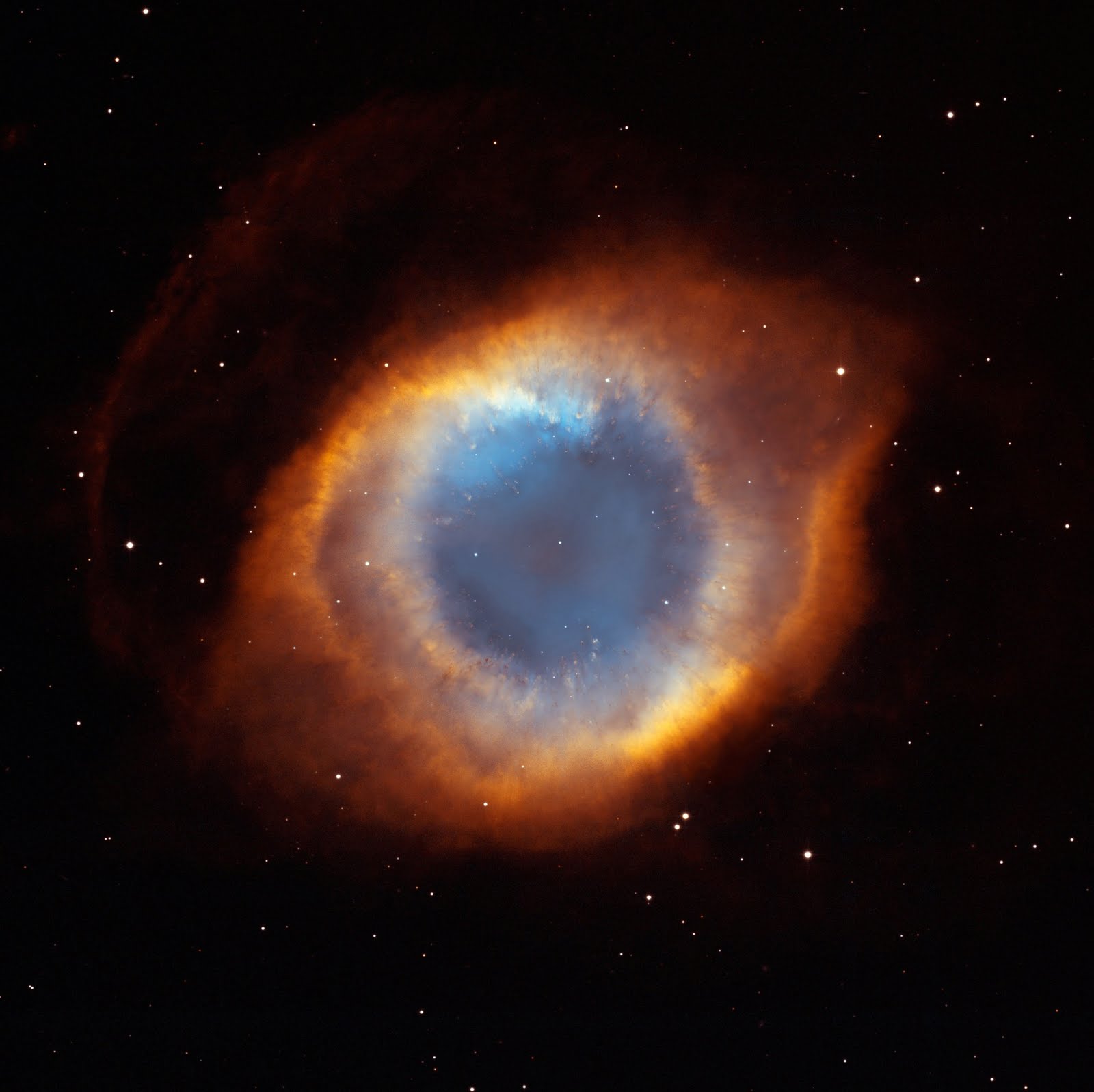
Joined: October 12 2007
Location: United States
Status: Offline
Points: 2764
|
 Posted: September 11 2014 at 01:51 Posted: September 11 2014 at 01:51 |
|
Prog burst out of the swollen stomach of psychedelia and then consumed its dying mother, who cried tears of joy. The birth of a king.
|
 |
Toaster Mantis 
Forum Senior Member


Joined: April 12 2008
Location: Denmark
Status: Offline
Points: 5898
|
 Posted: September 11 2014 at 03:53 Posted: September 11 2014 at 03:53 |
|
Didn't Frank Zappa actively distance himself from the psychedelic rock movement with the We're Only in It for the Money album being a rather savage satire on that subculture, which he found to not understand his music in the influence? He also avoided any controlled substances other than alcohol, cigarettes and coffee. It's Beefheart who was more into hallucinogens.
Not that he wasn't influential on both psychedelia and progressive rock, it's just that Zappa came from a different place culturally and musically. Maybe it's something in his music being more modernistic and characteristically American in a lot of ways, whereas the psychedelic music scene was capital-R Romantic and much of the progressive rock movement distinctly European in character?
|
|
"The past is not some static being, it is not a previous present, nor a present that has passed away; the past has its own dynamic being which is constantly renewed and renewing." - Claire Colebrook
|
 |
Dean 
Special Collaborator


Retired Admin and Amateur Layabout
Joined: May 13 2007
Location: Europe
Status: Offline
Points: 37575
|
 Posted: September 11 2014 at 04:51 Posted: September 11 2014 at 04:51 |
|
There was a wide gulf between American Psychedelic Rock, British Psychedelic Rock and European Psychedelic Rock, so much so they are practically different species.
|
|
What?
|
 |
earlyprog 
Collaborator

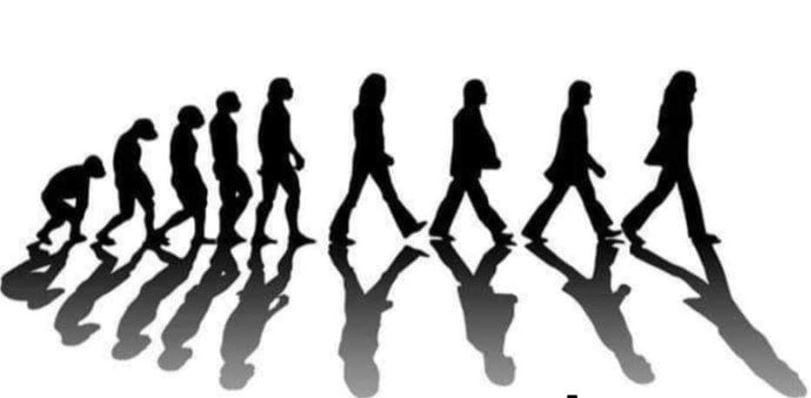
Neo / PSIKE / Heavy Teams
Joined: March 05 2006
Location: .
Status: Offline
Points: 2086
|
 Posted: September 11 2014 at 07:32 Posted: September 11 2014 at 07:32 |
 SteveG wrote: SteveG wrote:
One of the forms that Progressive Music developed out of in the 1960's was experimental Psychedelic Rock like the Beatles' entire Sgt. Pepper's concept album and songs. Was proper Progressive Rock Music in late 1960's trying to enhance Psychedelic Rock or become a more serious art form and try to escape it? Or was it a combination of both, or was neither the case? |
I'm not accepting your assumption that Sgt. Pepper is psychedelic rock. Which tunes exactly are you referring to?
The Beatles, thank God, never foraed into psychedelic rock, except for Yellow Submarine (perhaps even inventing UK psyche with this silly song?) whcih is very reminiscent of Syd Barrett's form of UK psycedelic rock. They were on drugs besides writing songs, particulartly John, but that doesn't make his output at the time psycedelic rock (Rain). US psychedelic rock was different than the silly Barrettesque UK form.
(In either form, psychedelic rock is not prog rock IMO, but unfortunately listed as such on PA lumped together with Space Rock which is also not prog rock IMO. I'm glad this thread gave me an opportunity vent my take on this again  )
Edited by earlyprog - September 11 2014 at 07:42
|
 |
SteveG 
Forum Senior Member


Joined: April 11 2014
Location: Kyiv In Spirit
Status: Offline
Points: 20506
|
 Posted: September 11 2014 at 08:53 Posted: September 11 2014 at 08:53 |
 earlyprog wrote: earlyprog wrote:
 SteveG wrote: SteveG wrote:
One of the forms that Progressive Music developed out of in the 1960's was experimental Psychedelic Rock like the Beatles' entire Sgt. Pepper's concept album and songs. Was proper Progressive Rock Music in late 1960's trying to enhance Psychedelic Rock or become a more serious art form and try to escape it? Or was it a combination of both, or was neither the case? |
I'm not accepting your assumption that Sgt. Pepper is psychedelic rock. Which tunes exactly are you referring to?
The Beatles, thank God, never foraed into psychedelic rock, except for Yellow Submarine (perhaps even inventing UK psyche with this silly song?) whcih is very reminiscent of Syd Barrett's form of UK psycedelic rock. They were on drugs besides writing songs, particulartly John, but that doesn't make his output at the time psycedelic rock (Rain). US psychedelic rock was different than the silly Barrettesque UK form.
(In either form, psychedelic rock is not prog rock IMO, but unfortunately listed as such on PA lumped together with Space Rock which is also not prog rock IMO. I'm glad this thread gave me an opportunity vent my take on this again  ) |
I guess Lucy in the Sky, Being for the Benefit of Mr. Kite, Fixing a Hole, Within You and Without You, Lovely Rita and A Day In The Life were folk rock. My bad. 
Edited by SteveG - September 11 2014 at 09:24
|
 |
earlyprog 
Collaborator


Neo / PSIKE / Heavy Teams
Joined: March 05 2006
Location: .
Status: Offline
Points: 2086
|
 Posted: September 11 2014 at 09:26 Posted: September 11 2014 at 09:26 |
 SteveG wrote: SteveG wrote:
I guess Lucy in the Sky, Being for the Benefit of Mr. Kite, Fixing a Hole, Within You and Without You, Lovely Rita and A Day In The Life were folk rock. My bad.
|
Musically diverse as these songs are, how can they belong to one genre, psychedelic rock? By stretching, lyrically there may be a connection, but musically I cannnot see any.
|
 |
SteveG 
Forum Senior Member


Joined: April 11 2014
Location: Kyiv In Spirit
Status: Offline
Points: 20506
|
 Posted: September 11 2014 at 09:48 Posted: September 11 2014 at 09:48 |
|
^With all due respect EP, this was the pyschedelic album of 1967 that launched a thousand Freak Outs, I know because I was there at the time.
|
 |
Davesax1965 
Forum Senior Member


Joined: May 23 2013
Location: UK
Status: Offline
Points: 2826
|
 Posted: September 11 2014 at 10:13 Posted: September 11 2014 at 10:13 |
To be quite honest with you, Prog Rock, as I understand it, and I hope I do, I play it, is a very broad church. It tends to be the case that people like categorising things, saying "this is prog rock, this is not." The whole prog era encompassed masses of bands who chopped and changed musically, borrowing ideas and combining them to produce something either interesting or commercially popular. The answer can be "yes" or "no" depending on what you want to categorise as prog rock.
Here's the inevitable example. A 36 and a half minute track - elements of prog rock. Elements of psychedelia. Elements of kraut rock. What's in there ? Hawkwind, Tangerine Dream, Arabic and Indian influences. I can say that with absolute certainty because I wrote and played the piece (wrote over 10 days during a fit of madness. ;-) ) - now, some people will say "Prog" and some will not. There's an old hack that only the opinion of the composer actually counts. I don't subscribe to that because art is subjective, not objective. So your opinion is an opinion, so's mine.
One thing I would suggest, though, is that putting genres into boxes is pretty much a wasted exercise. If you look at art and painting, so many artists and sculptors cross over in styles: same with musicians.
Cheers Dave
Edited by Davesax1965 - September 11 2014 at 10:17
|
 |
Davesax1965 
Forum Senior Member


Joined: May 23 2013
Location: UK
Status: Offline
Points: 2826
|
 Posted: September 11 2014 at 10:15 Posted: September 11 2014 at 10:15 |
PS Yes, the Beatles did a LOT of psychedelic rock tracks, though. ;-) Apologies for the categorisation. ;-)
|
 |
earlyprog 
Collaborator


Neo / PSIKE / Heavy Teams
Joined: March 05 2006
Location: .
Status: Offline
Points: 2086
|
 Posted: September 11 2014 at 10:19 Posted: September 11 2014 at 10:19 |
See, psychedelic rock has many definitions. Your's, SteveG, is based on what the music - however diverse it may seem - did to you. Well, prog rock blows my mind every now and then so I see the connection. ( Blew his mind out in a car....Now I understand  ) )
Edited by earlyprog - September 11 2014 at 10:21
|
 |
Rednight 
Forum Senior Member

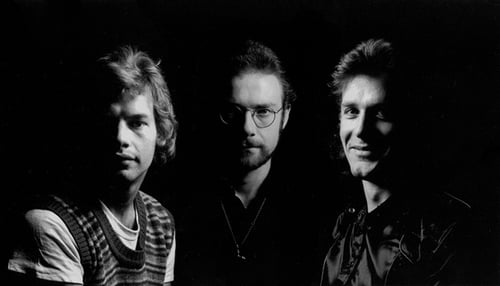
Joined: January 18 2014
Location: Mar Vista, CA
Status: Offline
Points: 4807
|
 Posted: September 11 2014 at 14:36 Posted: September 11 2014 at 14:36 |
|
Prog embraced it.
|
 |
Toaster Mantis 
Forum Senior Member


Joined: April 12 2008
Location: Denmark
Status: Offline
Points: 5898
|
 Posted: September 11 2014 at 14:37 Posted: September 11 2014 at 14:37 |
 Dean wrote: Dean wrote:
There was a wide gulf between American Psychedelic Rock, British Psychedelic Rock and European Psychedelic Rock, so much so they are practically different species. |
I wager that by Continental European psychedelia you're primarly referring to the Kosmische Musik movement of the Teutosphere?
|
|
"The past is not some static being, it is not a previous present, nor a present that has passed away; the past has its own dynamic being which is constantly renewed and renewing." - Claire Colebrook
|
 |
SteveG 
Forum Senior Member


Joined: April 11 2014
Location: Kyiv In Spirit
Status: Offline
Points: 20506
|
 Posted: September 11 2014 at 16:14 Posted: September 11 2014 at 16:14 |
 earlyprog wrote: earlyprog wrote:
See, psychedelic rock has many definitions. Your's, SteveG, is based on what the music - however diverse it may seem - did to you. Well, prog rock blows my mind every now and then so I see the connection. (Blew his mind out in a car....Now I understand  ) )
|
This is one those inane conversations where the definition of psychedelic rock is now called into question. Just because I was there doesn't mean I participated. I've seen enough LSD casualties not take it my self, but none the less, many others did. Here's a snatch from Wiki on this simple subject to put Sgt. Pepper where it belongs and not where you think it belongs. Peak years[edit] Psychedelic rock reached its apogee in the last years of the decade. 1967 saw the Beatles release the double A-side "Strawberry Fields Forever" and "Penny Lane", opening a strain of British "pastoral"[64] or "nostalgic"[10] psychedelia, followed by the release of what is often seen as their definitive psychedelic statement in Sgt. Pepper's Lonely Hearts Club Band, including the controversial track "Lucy in the Sky with Diamonds".[65] They continued the psychedelic theme later in the year with the double EP Magical Mystery Tour and the number one single "Hello, Goodbye" with its B-side "I Am the Walrus".[66] Also enigmatic and surreal was one of the most influential records of 1967, "A Whiter Shade of Pale" by Procol Harum, which reached number one in the UK Singles Chart on 8 June 1967, and stayed there for six weeks.[67] The Rolling Stones responded to Sgt Pepper later in the year with Their Satanic Majesties Request, and Pink Floyd produced what is usually seen as their best psychedelic work The Piper at the Gates of Dawn.[10][68] In 1967 the Incredible String Band's The 5000 Spirits or the Layers of the Onion developed their folk music into full blown psychedelia, which would be a major influence on psychedelic rock.[69] From 1967 Fairport Convention became a mainstay of the London Underground scene, producing their eponymous first album of American-inspired folk rock the following year.[70] The Pretty Things' rock opera S.F. Sorrow, released in December 1968, featured both heavy psychedelic songs such as "Old Man Going" and "I See You" and poppy numbers like "S.F.Sorrow Is Born" and "Baron Saturday".[71][72][73] The Small Faces' Ogdens' Nut Gone Flake (1968), released soon after, also pioneered the concept album, with the tracks on LP telling a single story.[74] The Redmond Stage at the Woodstock Festival in 1969 In America the Summer of Love of 1967 saw a huge number of young people from across America and the world travel to the Haight-Ashbury district of San Francisco, boosting the population from 15,000 to around 100,000.[75] It was prefaced by the Human Be-In event in March and reached its peak at the Monterey Pop Festival in June, the latter helping to make major American stars of Janis Joplin, lead singer of Big Brother and the Holding Company, Jimi Hendrix and The Who.[76] Key recordings included Jefferson Airplane's Surrealistic Pillow, the first album to come out of San Francisco during this era, which sold well enough to bring the city's music scene to the attention of the record industry: from it they took two of the earliest psychedelic hit singles: "White Rabbit" (1967) and "Somebody to Love" (1967).[77] The Doors' first hit single "Light My Fire" (1967), running for over seven minutes, became one of the defining records of the genre, although their follow up album Strange Days only enjoyed moderate success.[78] Santana, led by guitarist Carlos Santana, used Latin rhythms as the basis for their psychedelic music.[8] These trends climaxed in the 1969 Woodstock festival, which saw performances by most of the major psychedelic acts, including Jimi Hendrix, Jefferson Airplane, and the Grateful Dead.[79] Psychedelic rock was glamorized on screen in Easy Rider (1969), which used songs including Steppenwolf's "Born to be Wild" as part of its soundtrack.[8]
Edited by SteveG - September 11 2014 at 16:15
|
 |
moshkito 
Forum Senior Member


Joined: January 04 2007
Location: Grok City
Status: Offline
Points: 16178
|
 Posted: September 11 2014 at 16:35 Posted: September 11 2014 at 16:35 |
 Davesax1965 wrote: Davesax1965 wrote:
...One thing I would suggest, though, is that putting genres into boxes is pretty much a wasted exercise. If you look at art and painting, so many artists and sculptors cross over in styles: same with musicians. Cheers Dave
|
One could go as far back as the surrealism period in the arts in 1930 or so, but that is something that a lot of rock music writers do not like to do as it makes their idea and vision that rock music is God go astray pretty badly, and it comes off petty and silly, and childish. All in all, the majority of the music itself, did not create a "scene" other than America, where Woodstock pretty much killed it with the media at the time. The main difference between the Europeans and the Americans is that over here they have no respect, care or appreciation for the arts at all, because most of them are not "famous" in a country that still spends its time worshiping the top ten and the top star. Europe, at least has wider connections, and the krautrock groups, for example, were very tied to other arts. And still no one talks about the writers, the actors, the directors and so many others that were doing the same thing at the time. For all intents and purposes, Werner Herzog was doing "krautrock" at the time with Klaus Kinski. There connections are closer than we are willing to see and appreciate, and there are more than one event that makes sense and mixes well, but that is not a favorite subject here, although I have spent an incredible amount of time writing about it. Read my review of ITCOTCK, because it is (still!) the best screenshot of London 1967/1968 that you will ever see! The music, is almost superfluous in it!
|
|
Music is not just for listening ... it is for LIVING ... you got to feel it to know what's it about! Not being told!
www.pedrosena.com
|
 |
/PAlogo_v2.gif)


